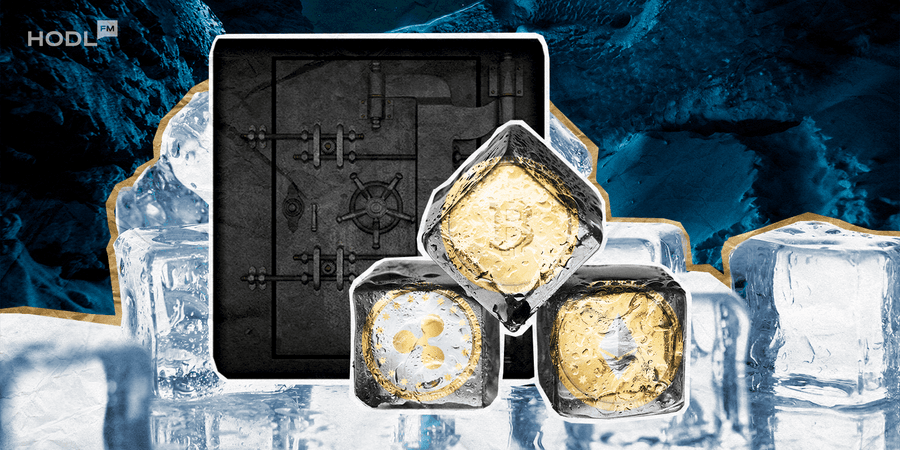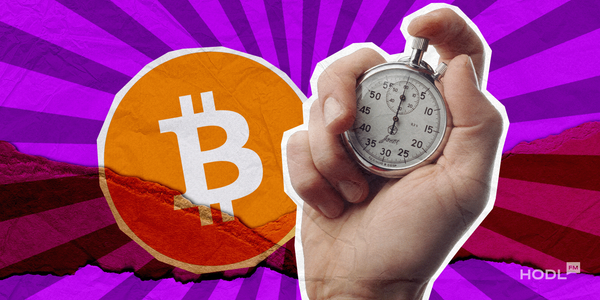The thrill of cryptocurrency trading can quickly turn into a nightmare if you don’t know how to store crypto safely. This is why you need a secure crypto wallet to shield your investments from hacking and fraud. But since there are more wallets than there are people who actually know how to use them, which wallets are still secure today?
This article will guide you through the various wallet types, security practices, and top wallet recommendations for 2025.
You think your wallet is safe?
— Mr smiles (@Boobzamoi) October 28, 2024
Think again.
I thought mine was too—until I lost everything I had worked for to a hack.
Here’s what you need to do to avoid my mistake 👇🏾 pic.twitter.com/74cgnQHTVu
Overview of Crypto Wallets
A crypto wallet is a must-have tool for handling your digital assets. It stores your private keys, which act as the backbone for cryptocurrency access and management. They provide a space for users to send, receive and store cryptocurrencies securely. Each wallet has different features and different levels of security.
There are two main categories of wallets: hot wallets and cold wallets. Hot wallets are internet-connected and make transactions as easy as pie—unless you accidentally send funds to “NotYourWallet123.” Then, it's a great party story! Nevertheless, they are vulnerable to cyberattacks. In contrast, cryptocurrency cold storage keeps private keys offline, which adds them additional protection against online threats.
Types of Cryptocurrency Wallets
If you are one of those wishing to invest in cryptocurrency, it is important to know the different types of cryptocurrency wallets. Here’s a closer look at the primary wallet types:
- Hot Wallets: But there are always advantages to keeping these wallets connected to the internet; they’re great for swift, quick access and transactions. Such examples include mobile apps like Coinbase Wallet or web-based platforms such as MetaMask. They are convenient, but also hackable.
- Cold Wallets: The storage options here are hardware wallets and paper wallets. Private keys are stored offline on hardware devices in private keys, such as Ledger and Trezor. Paper wallets are where we print your private keys to paper, which can be safely stored until lost, but you must handle the paper safely so you don't lose or damage the paper.
- Multi-Signature Wallets: To authorize a transaction, these wallets require multiple private keys. That feature increases security since nobody owns the funds and nobody has complete power over them.
- Paper Wallets: A paper wallet is a printed out document that houses your public and private keys. They supply an offline storage solution but can easily be lost or damaged if they aren’t handled with care.
Best Security Practices for Storing Crypto
There are options for wallets of varying levels of security involved; however, best security practices should always be adopted while storing your cryptocurrency. Here are some key tips that can help ensure your assets remain secure:
- Protecting Private Keys: First, your crypto assets are private keys and gateways to you only. Never share them with anyone and store all of them in a secure location.
- Use Two-Factor Authentication (2FA): Make sure to enable 2FA on any online wallet or exchange account for some extra layer of security.
- Regular Backups: Always backup your wallet information (and your recovery phrases) in several safe places.
- Beware of Phishing Attacks: Never endorse any URLs and never enter sensitive information before always verifying and never clicking on suspicious links.
- Keep Software Updated: Protect yourself by updating your wallet software to prevent weakness.
- Consider Using Multi-Signature Wallets: These wallets are a bit more secure as they take multiple approvals on transactions.
Recommended Wallets for 2025
For those looking to invest in cryptocurrencies in 2025, here are some of the best crypto wallets available:
Ledger Nano X
The Ledger Nano X is a top-tier hardware wallet, widely recognizable for both its robust security features and versatility. With over 5,500 cryptocurrencies, it’s one of the most extensive wallets. It is Bluetooth capable, allowing the users to easily manage their assets using mobiles.
This user-friendly interface is made for both newbies and experienced users to make it easy to navigate and spend. The Ledger Nano X also comes with a secure element chip for physical and digital threats. Giving it a price close to $149, its features and security capabilities are extensive, and it’s an excellent value.
People need to realize, a lost ledger wallet doesn’t necessarily mean you’ve lost access to your crypto. Your ledger only stores private keys for your cryptocurrencies offline. You can always recover your crypto by ordering a new ledger and setup with your 24-word recovery phase.
— Big◎s (@BigOsCrypt) April 24, 2022
Trezor Model T
Another leading hardware wallet is the Trezor Model T, which specialises in providing very strong security and is pretty user-friendly. With it being able to handle over 7,000 cryptocurrencies (such as all of the ERC20 tokens), it’s a great wallet to hold for all kinds of portfolios. The interface is designed to be simple and intuitive, such that the setup process and confirmations are easier to do.
The Trezor Model T has the advantage of a PIN, BIP39 passphrases and hidden wallet features to help protect against physical threats. It costs around $179 and remains a favorite among the long-term investors who are seeking to keep their assets safe.
Trust Wallet
Owned by Binance, Trust Wallet is a hot wallet favored by beginners because of its straightforward interface and a variety of support for cryptocurrencies. Its versatility means that the user can easily interact with decentralized applications (dApps), which makes it interesting for people in the DeFi space. Additionally, Trust Wallet offers a built-in Web3 browser that immediately allows you to surf through blockchain games and NFT marketplaces without another tab.
It has become one of the top-rated mobile wallets in both the Apple and Google marketplaces that have more than 10 million downloads. The integration made by Trust Wallet with Binance DEX further increases the usability of trading.
Coinbase Wallet
The Coinbase Wallet provides users complete control over their Crypto Assets on the Coinbase Wallet, a non-custodial wallet. It works well with the Coinbase exchange as wallet-to-exchange platform transfers are quick. Users can store various cryptocurrencies securely and still have access to a nice selection of staking and DeFi applications.
Supported by more than 500 digital assets, the wallet offers two factor authentication (2FA). As it’s so easy to set up, it is an obvious preferred choice for both new and veteran cryptocurrency investors.
MetaMask
MetaMask was originally an Ethereum wallet but has since expanded into supporting multiple blockchains and is beloved by DeFi folk everywhere. They enable users to mint and store their Ethereum-based tokens and allow for the retention of control of their private keys. Using MetaMask, you can use an easy-to-use interface for interacting with dapps and trade tokens right from your wallet without needing any centralized exchanges.
With over 30 million active users, it has become one of the most popular wallets in the crypto ecosystem. MetaMask also prioritizes security through seed phrase backups and hardware wallet integrations.
Exodus
Built on top of Elasticsearch, Exodus is a desktop wallet of over 270 cryptocurrencies with good aesthetic design and great functionality. Security is significantly improved by Trezor hardware wallets‘ and its seamless integration. There is a built-in exchange feature available for Exodus that allows you to trade one cryptocurrency to another quickly without leaving the app.
The wallet offers either an intuitive interface for newcomers or advanced features for seasoned cryptocurrency users. In addition, Exodus supports users with some of the best 24/7 support you’ll find in the industry.
Gnosis Safe
Gnosis Safe is a highly secure multi-signature wallet built for teams or individuals that wish to have greater control of their funds. Transactions are authorized by multiple signatures (private keys), with the result that the risk of unauthorized access or theft is greatly reduced.
Because of its security and flexibility in token management, Gnosis Safe is particularly popular among organizations that manage huge amounts of cryptocurrency. As it is suited both for personal use and business applications, users can set the acceptable settings based on their requirements.
Bitaddress.org
To generate your paper wallets, you can use bitaddress.org‘s simple tool. Since private keys are cold-stored, users can print them out properly without exposure to online threats. For everyday transactions to work more conveniently, paper wallets may not be as convenient.
But, when stored correctly in shields or security deposit boxes, they offer a lot of security. There is no recovery, so users should be careful not to throw or damage their paper wallets; otherwise, it’s lost forever.
Comparing Crypto Wallets
|
Supported Assets |
Key Features |
Price Range |
Security Features |
Price Range |
Security Features |
|
Ledger Nano X |
Hardware |
5,500+ |
Bluetooth connectivity, user-friendly interface, supports multiple currencies |
$149 |
Secure element chip, 2FA |
|
Trezor Model T |
Hardware |
9,000+ |
Touchscreen interface, supports multiple currencies, strong offline security |
$179 |
PIN protection, BIP39 passphrases |
|
Trust Wallet |
Hot |
10 million+ |
User-friendly, dApp interaction, Binance integration |
Free |
Non-custodial, private key control |
|
Coinbase Wallet |
Hot |
Thousands |
Easy integration with Coinbase exchange, mobile and browser access |
Free |
2FA support |
|
MetaMask |
Hot |
Ethereum and ERC20 tokens |
dApp access, user-friendly interface |
Free |
Seed phrase backup |
|
Exodus |
Hot |
300+ |
Built-in exchange, mobile and desktop apps, customer support |
Free |
Limited security features |
|
Gnosis Safe |
Multi-Sig |
Various |
Requires multiple signatures for transactions |
Free |
Multi-signature security |
|
Bitaddress.org |
Paper |
N/A |
Generates paper wallets for offline storage |
Free |
Offline storage |

Disclaimer: All materials on this site are for informational purposes only. None of the material should be interpreted as investment advice. Please note that despite the nature of much of the material created and hosted on this website, HODL FM is not a financial reference resource and the opinions of authors and other contributors are their own and should not be taken as financial advice. If you require advice of this sort, HODL FM strongly recommends contacting a qualified industry professional.





